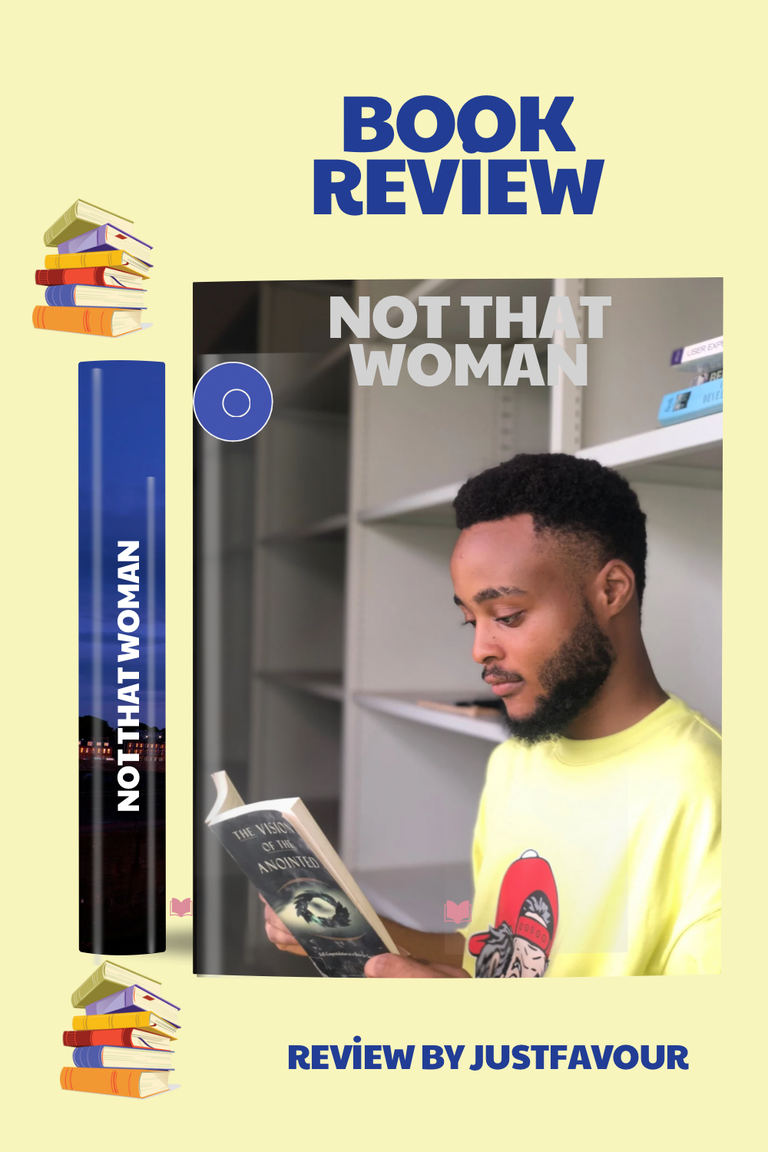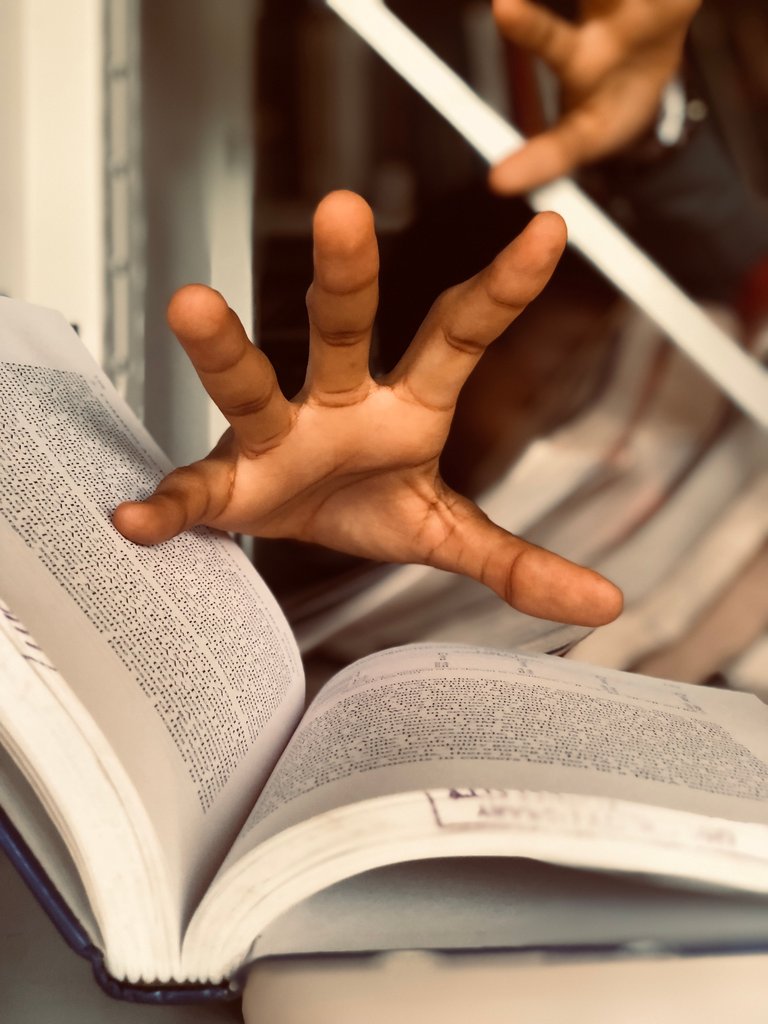Book Review: Not That Woman By Tosin-Jobi Tume

One of the things that really draws me into a book and keeps my mind trapped until I flip the last page is when the author explores pressing issues that are relevant in our current world. We are in the 21st century, and who wouldn't want to read books about the relevant issues we face today? Books that explore 21st-century themes keep me invested. I think this has to do with the fact that I've read too many old books that explore “outdated” themes and I got bored. Naturally, when I get bored with a genre, I jump to another one. Over the past few months, I have found that this is what keeps me on my toes. One book that perfectly fits this criteria is “Not That Woman” by Tosin Jobi Tume. It's a book that explores one of the most important contemporary issues in today’s world.
One of the reasons I picked up this book is that the author is a professor in my school. She is a professor of Theatre and Media arts, and I'd been hearing how good she is, so I wanted to check if she’d tick the boxes well. Another reason why I picked up this book is the title. “Not That Woman.” I have a thing for creative titles that pique my curiosity. As soon as I saw the book, my mind teleported to different places, seeking answers. Which woman? What happened to her? Why can't it be her? The title alone piqued my curiosity, even before I flipped the first page. I love it when authors craft creative titles that grab the attention of readers. Not That Woman by Tosin-Jobi Tume did just that. The title drew me in even before I flipped the first page.

Not That Woman is a one-act play by Tosin Jobi Tume. The play explores a broad spectrum of the many challenges girls and women face in a developing society. Over the years, one of the prevailing issues that is causing ruckus and commotion in many countries is female oppression and brutality. The issue of Gender equality and inequality has sparked debates and arguments in many countries. Not That Woman uses so many strategies to tackle the issue of female oppression. One of the strategies is the title of the play itself- NOT THAT WOMAN. Which woman is “That” woman? Why shouldn't women be like “THAT” woman? Why shouldn't women behave like “THAT” women? If not “THAT” woman, which other one should women imitate? The play exposes how women are brutalized and oppressed by the masculine gender through the use of dialogue, storytelling, and flashbacks.

Not that Woman is a play text by Tosin-Jobi Tume. The exposition introduces us to three characters; Folake, Nkechi, and Zainab. The three characters have been victims of female oppression. Each has suffered at the hands of the masculine gender in one way or the other. Folake suffered incest, sexual abuse, and beatings. Nkechi suffered abuse, and incest, and was forced to work in a baby factory. Zainab was a wife who suffered beatings and rape and will never have children. Their life took an interesting turn when Madam B, a philanthropist and the founder of a women refugee, saved them from oppressors, took them in, and changed their lives for the better. The goal of their organization is to save women in need (women battling oppression and brutality.)
As the story progresses. The playwright introduces us to another character, Joyce. A friend of the women's refugee organization. Joyce was once an excellent lawyer, doing well in her career. However, her life and career took a nosedive when she married Larry, a good for nothing womanizer and abuser. Larry made her quit her job (ignorantly, she obeyed him), controlled her movements, and didn't allow her to do anything without his permission. Joyce would wake up to receive several slaps and punches every morning. Despite warnings and advice from Madam B and the other members of the women's organization, Joyce refused to leave Larry. But, the final straw that broke the camel’s back kicked in when Joyce discovers Larry’s plan to kill her and elope with his side chick. Will Joyce finally leave him or will she continue to suffer in silence like THAT woman?

As I mentioned above, the first thing that drew me to this book is the title of the play. I love it when writers go the extra length to make their titles creative. Don’t be too direct with your titles, yet, don’t be complicated. I love writers who can find balance and create a masterpiece. I also liked the character development. The play is not overloaded with too many characters, which helps the author develop each character well. Let's use Nkechi as a case study. At the beginning of the plot, we see her as a character who suffers from rape, and incest, and is forced to go into baby factory business. Although she ends up with HIV, she becomes a strong character who vows to protect other women and prevent them from going through what she did. The expert use of character development is also evident in characters like Folake, Zainab, and to some extent, Joyce.
Also, the playwright explored so many themes. One of the notable themes in Not That Woman by Tosin-Jobi Tume is the use of stories as strength. The main characters; Nkechi, Folake, and Zainab, tell stories about their experiences with male oppressors. By telling their stories, they empower the audience and other characters to learn from them and know how to handle themselves if they find themselves in similar situations. I also liked the writer’s writing style; clear and simple.
Not That Woman by Tosin-Jobi Tume is an interesting read. I am giving it a solid 4 out of 5 stars. I recommend this book to all book lovers.
Note; ALL IMAGES IN THIS POST ARE MINE OTHERWISE STATED.
Thanks for reading.
Posted Using InLeo Alpha

Thank you for sharing your review in our community. Your post is upvoted and highlited in our lately compilation. Don't forget to engage and if you enjoy being part of our community, please support us by upvoting or delegating to our @hivebookclub account. Your support is deeply appreciated!